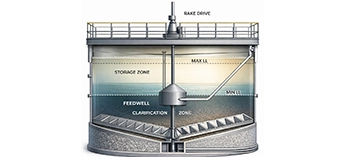UPM has officially endorsed the European Union’s newly published Bioeconomy Strategy, characterizing the initiative as a decisive pivot toward climate neutrality and renewed industrial competitiveness.
In a statement released Thursday, the Finnish forest industry company described the strategy as a catalyst for scaling up biobased innovations across the continent. By broadening the scope of the circular economy to include virgin materials derived from biobased feedstocks, the EU is effectively opening new pathways for industries to transition away from fossil-based inputs.
According to UPM, the strategy’s ambition to establish concrete targets for biobased content is particularly significant. The company suggests that clear regulatory goals will provide the market confidence necessary to accelerate technology investments and commercial uptake.
Validating Industrial Scale-Up
The policy alignment comes at a critical operational juncture for UPM. Harald Dialer, Executive Vice President of Technology and UPM Biorefining, noted that the EU’s vision mirrors the company’s current capital projects.
“These are important signals for companies driving sustainable growth and innovation,” said Dialer. “At UPM, we are putting this vision into action. Our €1.3 billion wood-to-chemicals biorefinery in Leuna is starting up.”
The Leuna facility represents Europe’s largest investment in industrial-scale biochemicals. It is designed to convert sustainably sourced wood into a new portfolio of biochemicals, offering brands a way to reduce emissions and differentiate performance without relying on fossil raw materials.
Call for Regulatory Momentum
Beyond environmental metrics, UPM highlighted the strategy's role in securing Europe’s strategic autonomy. By fostering value chains rooted in renewable, local feedstocks, the bloc can reduce its dependence on fossil imports while generating high-quality jobs.
However, UPM warned that the strategy requires legislative backing to be effective. The company is calling on EU and Member State leaders to follow through with concrete regulatory actions, including streamlined sustainability criteria and financial incentives for green investments, to fully unlock the bioeconomy’s potential.
UPM Biochemicals develops wood-based biochemicals designed to replace fossil raw materials in industrial applications. Its products include renewable glycols for packaging, textiles and PET bottles, as well as lignin-based fillers for plastics and rubber. The company is building an industrial-scale biorefinery in Leuna, Germany, to produce next-generation biochemicals.
UPM is a global materials company focused on renewable fibres, advanced materials, and decarbonization solutions. The group employs around 15,800 people, operates worldwide, and reported annual sales of approximately €10.3 billion. UPM’s shares are listed on Nasdaq Helsinki.
Source: UPM
























































